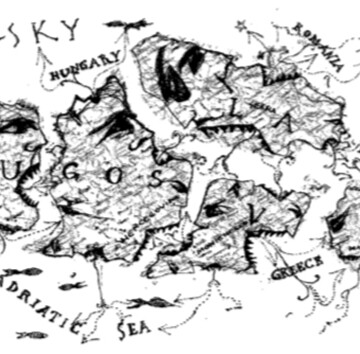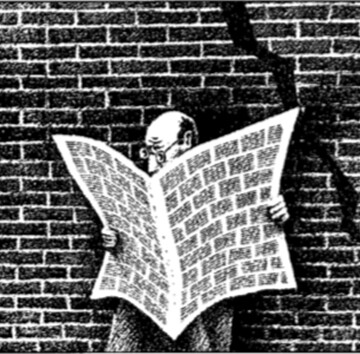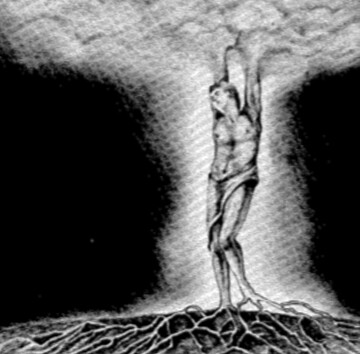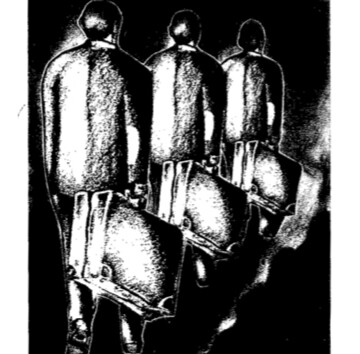In the historical memory of Central and Eastern European peoples, the words “Muslim” and “Islam” often evoke images of terror and violence. Derided by leftist and liberal intellectuals as “xenophobic,” these negative images are still associated with the Turks and their centuries-long military incursions into the heart of Europe. Even the verbal derivatives of the...
Author: Tomislav Sunic (Tomislav Sunic)
The Coming Belgoslavia?
What was meant to grow separately cannot last long as an artificial whole. This prehistoric wisdom seems to be forgotten by advocates of multiculturalism—which is just a misleading euphemism for polyethnism and multiracialism. The unpredictable side of multiracial conviviality seems to be deliberately overlooked by political elites in multiethnic and multiracial Belgium, a miniscule country...
Changing of the Guard
The birth of modern Croatia was closely tied to the paternalistic image of one man: Franjo Tudjman. A self-described nationalist and anticommunist, Tudjman ruled over Croatia for ten years until his death in December 1999. In January 2000, presidential and parliamentary elections brought to power a motley crew of reformed communists, liberals, and globalists. The...
Sixty-Eighters
From the United States to France, from Germany to England, the post-World War II generation is now running the show. They have traded in their jeans and sneakers for political power. Thirty years ago, they rocked the boat at Berkeley, in Paris, and in Berlin; they marched against U.S. involvement in Vietnam, and supported the...
The Maastricht Mystique
Even an expert must be mystified by the legal structures of the European Union Parliament and the European Commission. The EU Parliament has roughly 620 deputies, elected every five years from 15 Western European states. Voters from ElU countries have no decision over the election of other countries’ deputies to the EU Parliament. The president...
The Crime of History
He who writes a nation’s history also controls its future—so wrote George Orwell. During the Soviet reign over Eastern Europe, every citizen knew who was in charge of writing history, especially that dealing with the victims of World War II. Anyone professing to be a Slovak, a Croat, a Ukrainian, or a Russian nationalist was...
Eastern Europe’s Suicide Pact
Eastern Europeans are plagued by provincialism: they believe that everything coming from the West must intrinsically be good. Yesterday, the intellectual fashion, spreading from Berkeley to the University of Vincennes in France, consisted of regurgitating the dogma of Yugoslav “self-management” and learning the catechism of “socialism with a human face.” Today, times have changed in...
The Right Stuff Drugs and Democracy
Morphine is said to be good for people subject to severe depressions, or even pessimism. Although the drug first surfaced in a laboratory at the end of the last century, its basis, opium, had been used earlier by many aristocratic and reactionary thinkers. A young and secretive German romantic, Novalis, enjoyed eating and smoking opium...
The Eurobalkan Basketcase
To place equal blame on the Serbs and Croats for the tragedy in Croatia and Bosnia-Herzegovina appears to be an exercise in academic self-righteousness. On the international hit parade of bad guys, some Bosnian Serbs take the lead, followed, in the distance, by some Bosnian Croats—while the Bosnian Muslims are more or less exonerated from...
Homo Sovieticus Lives On
To the old popular proverb, “The only good communist is a dead communist,” we should perhaps now add: “Once a communist, forever a communist.” Although as a muscled ideology communism is dead, as a way of life it is still very much alive. Similar to any other past and present mass belief or theology, communism...
Glamour, Glitter, Glitz, and Glory
Nobody can deny that the videosphere has completely devoured the graphosphere. The one-dimensional surreal world has hijacked the three-dimensional real world. The CNN and ABC networks in America, the French TF1 and TF2, have totally displaced books and journals. The swift, levitating image has come ahead of the solidly grounded written word. No longer is...
The Divine Left vs. the New Right
This time around, the divine left is definitely short of ideological change. Once upon a recent time it went to sleep with uncle Stalin; much later, it began to yawn with the revisionist Trotsky, Mao, and Tito; today, it is noisily waking up to the tune of politically correct liberalism. Even a layman must raise...
The Yugoslav Mythology
One must agree with Georges Sorel that political myths have a long and durable life. For 74 years the Yugoslav state drew its legitimacy from the spirit of Versailles and Yalta, as well as from the Serb-inspired pan-Slavic mythology. By carefully manipulating the history of their constituent peoples while glorifying their own, Yugoslav leaders managed...
The New Right of the Old World
Intellectual conservatism in Europe began its odyssey with Donoso Cortes in the 19th century, only to end its shipwrecked voyage a century later with Oswald Spengler. European conservatism has always been a panic-stricken response to the egalitarian torrents that have been sweeping over Europe since the American and French Revolutions. After 1945, the anus mundi...
The Decline and Splendor of Nationalism
No political phenomenon can be so creative and so destructive as nationalism. Nationalism can be a metaphor for the supreme truth but also an allegory for the nostalgia of death. No exotic country, no gold, no woman can trigger such an outpouring of passion as the sacred homeland, and contrary to all Freudians more people...
What Is Right?
Many ambiguities continue to surround the term “right.” A century after the word entered the jargon of party politics, and forty-five years after the military defeat of fascism, there is still no comprehensive theory of the right. What exactly does it represent in a time of “soft” politics and the end of “hard” ideologies? Does...
Exodus From the East
Until recently everybody thought that the threat of the Soviet Union lay in its strength; today everybody wisely claims it lies in its weakness. For almost a century the sheer weight and size of the communist monolith made us shudder with fear. Nowadays the monolith is breaking up into parts that, like comets, threaten to...
The Gulf Grisis in Europe
Whatever may be the outcome of the crisis in the Gulf, one thing is already certain: European intellectuals will no longer be polarized along ideological lines, but divided along geopolitical fault lines. For the first time the European right is marching hand-in-hand with the European left, in common protest against the U.S. involvement in the...
A Global Village or the Rights of the Peoples?
The great conflicts of the future will no longer pit left against right, or East against West, but the forces of nationalism and regionalism against the credo of universal democracy. The lofty ideal of the global village seems to be stumbling over the renewed rise of East European separatism, whose aftershocks may soon spill over...



